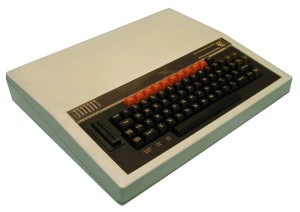That’s very unfair. But Jon Levy who described by Lifehacker as a behaviour expert is also called a master networker by Business Insider and you just aren’t warming to him, are you? This will seal the deal:
At one of Jon Levy’s house parties you could find yourself, as we recently did, making fajitas with Grammy-nominated singer-songwriter Regina Spektor and leading snake venom expert Zoltan Takacs before watching live presentations from Bill Nye the Science Guy and break-dancing pioneer Richard “Crazy Legs” Colón.
A Master Networker Shares His Top 20 Networking Tips – Richard Feloni, Business Insider (27 January 2015)
O-kay. Not sure why that irritates me so but it does and I’m man enough to be open about it even as I tell you I’m a fan of Regina Spektor, I’ve only heard of Bill Nye the Science Guy via The Big Bang Theory and I’ve no idea who the break dancer is.
Nonetheless, Business Insider was happy to be in this party and I wasn’t invited, so what do I know? I know that it wasn’t a casual get together, it was a show: Levy runs what he calls Salons for getting people together. That feels contrived and artificial to me because it’s contrived and artificial. But among the things Business Insider got out of Levy there are some undeniably good ideas, if crouched in corporate-speak:
[You] should be thinking of how you can add value to a potential connection without expecting anything in return, at least immediately. Levy is a proponent of Wharton professor — and Influencers member — Adam Grant’s theory on “givers,” those who seek out opportunities to help people they respect and appreciate. “If you’re a giver, then you build quality relationships, and with those relationships you’re exposed to opportunity over the long term,” Grant told Business Insider last year. “You actually increase your own luck so far as you contribute things to other people.
I can’t disagree: when I’ve done things for people just to be a mensch, it has often led to things for myself later on. I just think that if I went in expecting that, doing something nice becomes less nice. Plus, it is just exciting to see two people you’ve introduced go off to do something brilliant together. Isn’t that enough?
It’s not network leverage, it’s being a mensch. So, okay, I have the kind of wet and liberal arts mind that means I have to translate corporate-speak into Yiddish, but in principle I agree with Levy on this one. I just don’t on this:
“When people ask me what I do, I try to be a little elusive just to create some interest. So I tell people I spend most of my life trying to convince people to cook me dinner. Which is true,” he says, laughing. “A lot of my time is really spent around logistics, phone calls, and emails and all that. But the benefit of [my introduction] is that it sounds so different and then it’s much easier to connect.”
I haven’t just walked away from him but my mind’s switched off. If you ask me what I do, I tell you I’m a writer and then we can get on to what you do and what you care about. I know all about me, I was there, I saw me do it, I have zero interest in tricking you into hearing my CV, I have full and complete interest in knowing about you.
All of which is, I think, a slow way of saying that there’s this article about a right article who does networking and that with some caution, you might like to read it. I could’ve just said that, couldn’t I?
